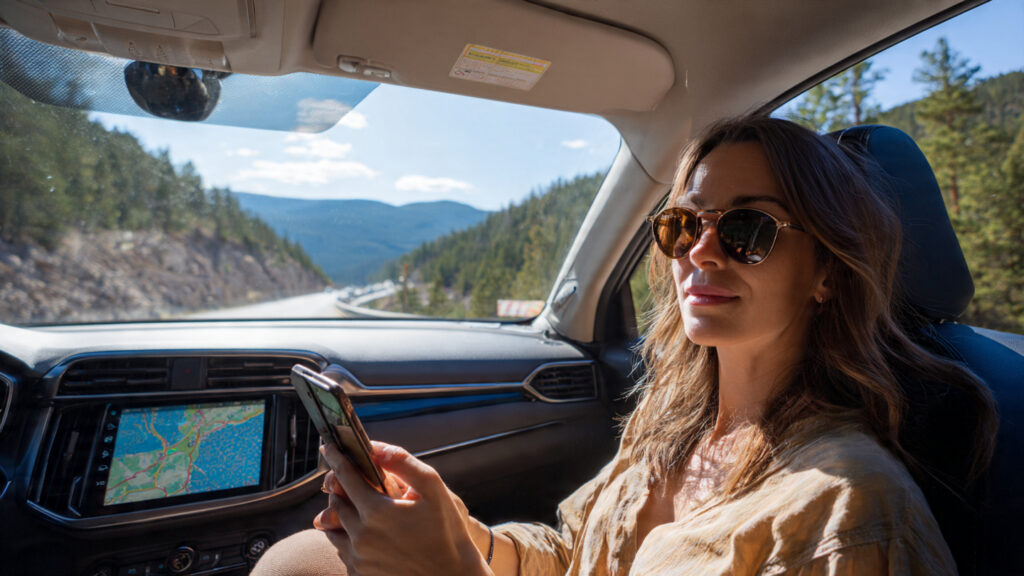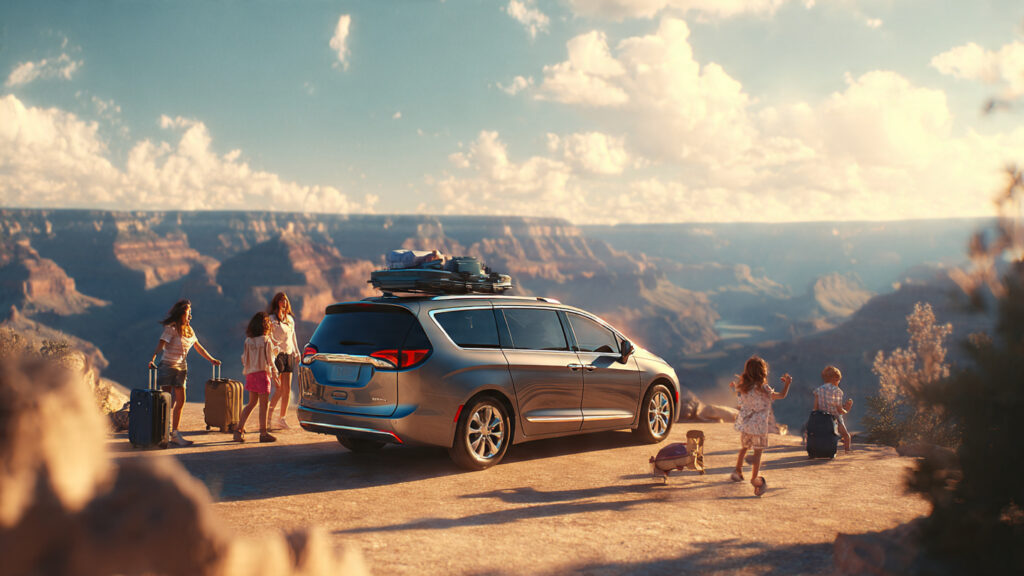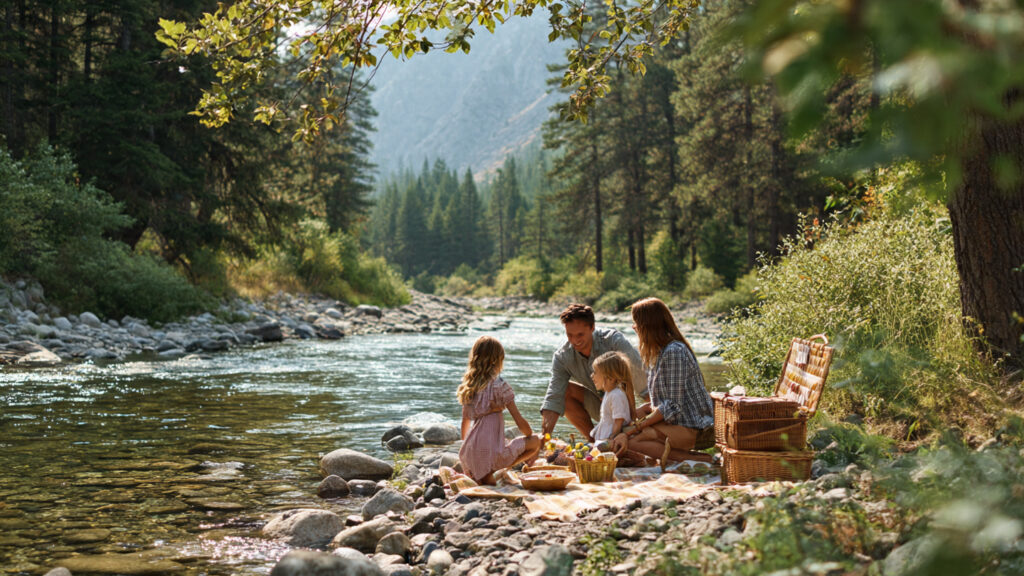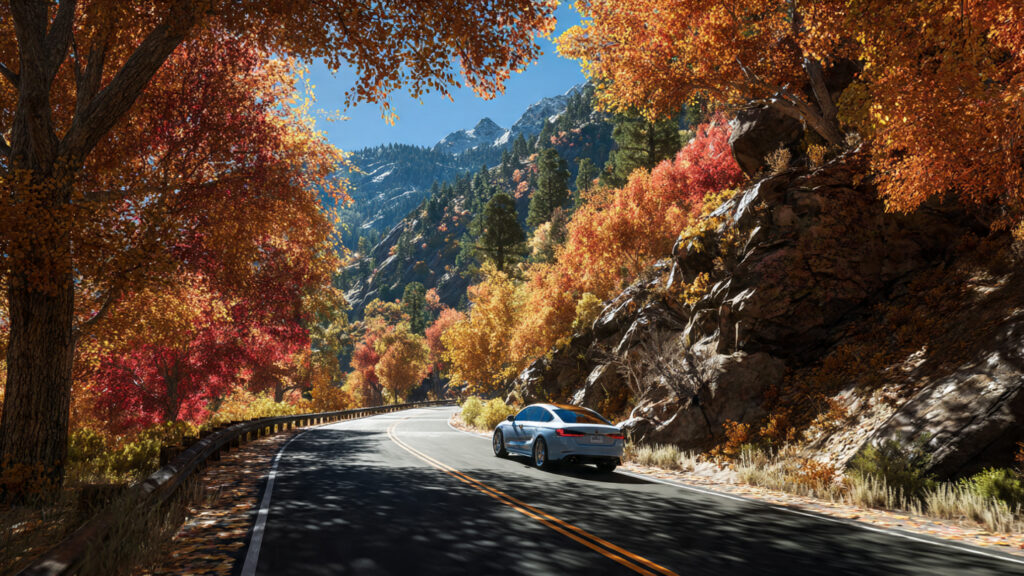When you close the car door and turn the key, the road feels very open. You are free to go on a trip alone, but are also responsible, especially if you are the only one driving, navigating, fixing things, and telling stories. These tips come from women who have driven on all two lane highways, coast to coast, mountains to deserts, and everywhere. They did things, asked questions, and sometimes fixed a flat at night under the stars to learn. Feel free to read every line, keep the ones that fit your style, and keep going.

Planning Before You Leave
Choose the Routes You Know First
Beginning with a weekend run that is less than three hours from home. Find out how your car handles steep mountain roads and how you deal with being alone. On roads you know, confidence grows faster than on interstates you have never been on.
Share Your Plan, Not Your Secrets
Tell a trusted friend your exact route, where you will stop each night, and when you plan to check in. Share a Google Map or a simple text. Do not share live reports on public social media. Wait to post the stories until after you get there.
Sleep Reservations Matter
You should book the first two nights before you leave. When you know you have a bed waiting for you, you do not have to accept sketchy offers at dusk when you are tired from the day.
Car Prep Checklist
Check Fluids and Tires
You should check the oil, coolant, brake fluid, and tire pressure one week before you leave. You must know how to read the dipstick and use a tire measure on the road.
Spare Tire and Tools
Bring a full size spare tire, a jack, a lug wrench, and a cheap tire plug kit if you can. Once you practice changing a tire in your yard, it is better than being scared at midnight.
Emergency Kit Basics
A flashlight, a paper map, two gallons of water, a first aid kit, and a blanket are kept in the trunk. If you want to charge your phone, plug it into the car lighter.
Personal Safety Gear
On the key chain is a small flashlight and a whistle. In your bag is a paper list of people to call in an emergency. A magnet box under the bumper is a good place to hide an extra car key.
Packing Smart
Clothing for Confidence
One nice outfit for meals coming out of the blue, one pair of sturdy shoes for hikes, and layers in case the weather changes quickly. Dark pants work everywhere and hide dirt from the road.
Toiletries in One Bag
You can get toothpaste at a rest stop with a clear zip bag without taking everything out of the car. Add baby wipes for quick clean ups and to clean the glass in an emergency.
Food and Water
Bringing a small cooler with you will help you stay cool. Fill up an eco friendly bottle at every gas stop. You remain alert and save money when you eat.
Cash and Cards
Bring one credit card, a bank card, and $100 in small bills. Please keep them in three places: your wallet, glove box, and secret bag.
On the Road
Fuel Strategy
When the tank is half full, fill it up. In the deserts and mountains, gas stores are hard to find. To find the best places to stop, use the GasBuddy app. Stay away from exits with only one pump.
Rest Stop Rules
Under the lights, park close to the building. First, go to the bathroom, then stretch. Always go with your gut when you are driving. If something does not feel right, take the next route.
Phone Check ins
Text your friend when you get there, at lunch, and dinner. A simple “Gas in Tucumcari, everything is fine” message stops people from worrying and lets them know if plans change.
Night Driving
Suppose you can, stay away from it. Do not go off road; stay on major roads, use high beams until you meet other cars, and plan to stop every two hours to remain alert.
Sleeping Arrangements
Camping Solo
Campgrounds with hosts or ranger posts are good to use. Instead of picking a quiet spot, choose a site near other families or RVs. Keep your keys in the pocket of your sleeping bag and lock up your goods in the car.
Motel Choices
Chain hotels near exits from interstates are easy to find and have good lighting. Ask for a room on the first floor close to the office. Before you open the door, you should always look through the peephole.
Airbnb Tips
Look for safety talk in reviews. Pick superhosts who have had a lot of recent guests. Get there before it gets dark and park close to the front door.
Meeting People
Friendly but Cautious
If you are at a gas station or visitor centre, talk to other travellers. But do not tell them your exact plan or that you are travelling alone. If someone asks you a question, say, “I am meeting friends tomorrow.”
Local Women
Women workers or hikers can often tell you the safest places to use the bathroom or a café.
Social Media Later
Post pictures when you get back from town. Anyone who is watching can get a hint from real time information.
Handling Breakdowns
Flat Tire Plan
Pull over to the shoulder, lights on, and doors locked. You can call for help or use your jack if traffic is light. Leave the road and stand on the passenger side.
Dead Battery
If no one is around, use your jumper wires to signal a car coming by. First, ask to see their ID, and then let them join. Do not talk too much and be nice.
Locked Keys
Use the extra key you hid. If you lose, you can get your insurance to pay for a locksmith. Never help someone you do not know without first checking their qualifications.
Weather and Terrain
Desert Driving
Bring extra water and a shade. Do not get out of the car if the engine gets too hot. Stay inside and call for help. During the day, make sure your headlights are on to see better.
Mountain Roads
To save brakes, go down steep hills in low gear. Keep an eye out for elk and sudden changes in the weather. Even in the summer, keep a sweater close by.
Emergency Contacts
Pre program Numbers
Make speed dial numbers for roadside help, insurance, and a friend you trust. Also, write them down—phones break.
Local Help Apps
Get the What3Words app to share your location and find the closest hospital.
Self Defense Basics
Voice and Confidence
Most unwanted interests can be turned off with a firm “No thank you” and steady eye contact. Work on it in front of a mirror until it comes naturally.
Simple Tools
A whistle is allowed everywhere and works quickly to get people’s attention. A small personal bell that you can attach to your belt makes noise without taking up much space.
Trust Your Gut
If something does not feel right, leave right away. Your safe place is in the car. Start the engine and drive away.
Budget Hacks
Fuel Rewards
Sign up for fuel services at grocery stores. It is enough to drive 1,500 miles with ten cents off per gallon.
Free Camping
You can park overnight in National Forests and Walmart lots. Take a look at the signs and ask the managers.
Meal Deals
You can save twenty dollars a day by eating frozen chicken and happy hour snacks.
Mental Health on the Road
Music and Podcasts
Make sets ahead of time. Songs you know help you relax and stay awake for long periods.
Journaling
You can use a simple notebook as a trip journal and a safety log. Write down what went well and what needs to be changed next time.
Alone Time
Set aside an hour every day to do nothing. You could read a book, sit by a lake, or call your family. Some quiet time can clear your mind.
FAQs
In your opinion, what are the most important safety tips for women driving alone?
Some important safety tips include being aware of your surroundings, letting trusted people know where you are, and avoiding places that are isolated. A personal safety device and planning your stops ahead of time can also help make your trip safer and more fun if you are traveling by yourself.
How can I pick safe places to stay on a car trip by myself?
Find hotels or hostels with good reviews in safe areas, preferably with a 24 hour front desk. You can help ensure you have a safe and comfy stay by booking in advance and reading recent guest reviews.
What should I bring with me on a solo car trip to keep myself safe?
Bring a full phone, a portable charger, a whistle, pepper spray (if allowed), a first-aid kit, and clothes that reflect light. Putting important papers and emergency contacts in a safe place is another thing that you should do.
Just driving by myself, how can I stay awake and aware?
Keep your eyes on the road, take breaks often, and do not drive at night in places you do not know. Listening to music or podcasts at a moderate pace can help you stay awake and avoid distractions.
When you are traveling by yourself, is it safe to use ride sharing services or public transportation?
Yes, both ride sharing and public transportation can be safe as long as you do your research on the driver, tell someone you trust about your trip, and do not travel alone late at night.
How should I handle crises or unexpected things that come up on a road trip by myself?
Bring a list of emergency numbers, roadside assistance numbers, and nearby hospitals. You can handle situations better if you stay calm, know basic self-defense, and have a GPS enabled device.
When I meet new people on the road, what should I do to stay safe?
Trust your gut, meet in public places only, and do not give out personal information too soon. It can help keep you safer to let friends or family know about your contacts.
What can I do to stay safe at rest stops and gas stations?
Lock your car when you are not in it, and do not park in a spot by itself. Instead, park near exits or well-lit areas. Be careful, and if something does not seem right, either go somewhere safer or keep going.
Is it okay to post about my trip online if I am going by myself?
You should not share too much real time information on social media. Instead, tell close family or friends about your plans in secret to stay safe and private.
What can I do to stay calm and confident on a car trip alone?
Being ready, planning ahead, and knowing yourself can help improve confidence. Learn the trails, bring safety gear, and trust your gut to feel safe and enjoy your trip to the fullest.
Conclusion
Going on a car trip by yourself makes you stronger. Be careful, plan, and trust your gut. When you get to the last mile and see a number on the speedometer you never thought possible, you will know the trip was worth it.



